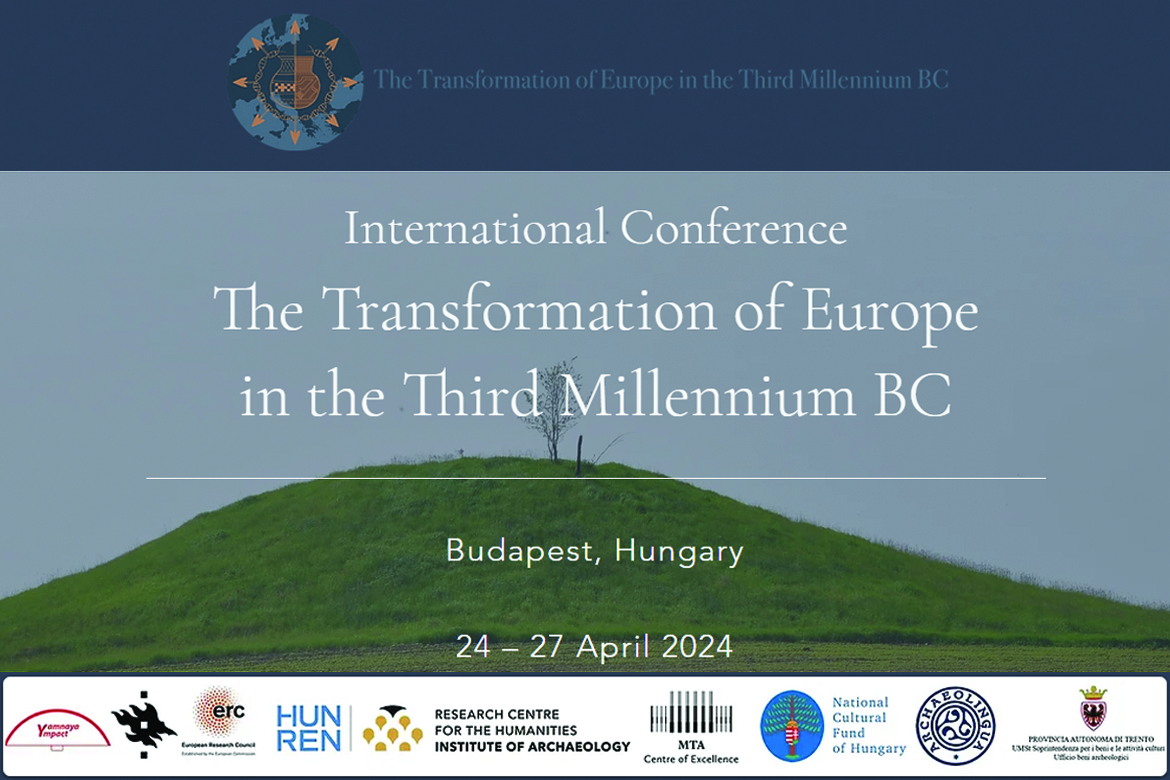"The conference titled "The Transformation of Europe in the Third Millennium BC" took place in Budapest from April 24 to 27, 2024. The aim of the meeting was to summarize the exponentially increased quantity and quality of knowledge spanning various fields of science, including archaeology, anthropology, genetics/genomics, linguistics, and other biological and environmental sciences, through inspiring dialogue. Internationally recognized invited speakers and the poster session provided a comprehensive insight into the history of the third millennium BC, which brought significant changes to prehistoric Europe.
The significance of this era lies in the complete transformation of the previously known cultural conditions under the influence of communities reaching the western region of Eurasia from the Eastern European steppe, leading to the establishment of the genetic foundation of modern Europe. Behind the history of this era lies the acceleration of the domestication of horses, the strengthening consumption of dairy products, the technological foundations of later Bronze Age metallurgy, and the emergence of new networks of connections. This was a vast process spanning large territories, likely associated with the spread of the Indo-European language family. The history of this era was presumably not devoid of challenges. The communities flowing into Europe, due to their physical strength (being taller and more robust than the local inhabitants), likely held a military advantage, making control over territories important to them. They also brought diseases with them, with the appearance of the plague being attributed to them.
During the four days of the conference, the distinguished invited speakers summarized the current state of research in 28 presentations. These notable speakers came from the most significant research sites of the era: Bulgaria (Sofia), Denmark (Aarhus, Copenhagen), Finland (Helsinki), the Netherlands (Leiden), Croatia (Zagreb), Poland (Krakow, Poznań, Rzeszów), Hungary (Budapest, Debrecen, Szeged), the Republic of Moldova (Chișinău), Italy (Trento, Venice), Germany (Berlin, Bonn, Kiel, Leipzig, Mainz, Munich), Romania (Cluj-Napoca), Switzerland (Bern), Sweden (Gothenburg, Lund), as well as representing Harvard Medical School in the United States.

The main organizers of the Budapest meeting were Volker Heyd of the ERC YMPACT project (University of Helsinki), Franco Nicolis (Archaeological Heritage Protection Office, Trento, Italy), and Gabriella Kulcsár (Institute of Archaeology, HUN-REN Research Centre for the Humanities, Budapest). The event was supported by the National Cultural Fund, Archaeolingua Foundation, Kiskunság National Park, Dunatáj Public Foundation, Lendület Seed Ecology Research Group and Salisbury Ltd.
On the second day of the event, the director of our institute, Anna Szécsényi-Nagy, also gave a presentation in the "In and around the Carpathian Basin at the End of Fourth and in the First Half of the Third Millennium BC" section. The title of her presentation was "Human Genetics Perspective of the Carpathian Basin at the Dawn of the 3rd Millennium BCE."


